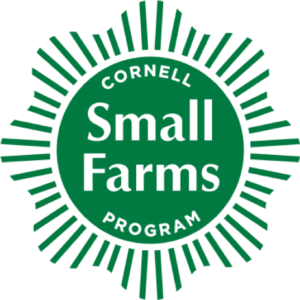The Slaughterhouse Map has moved! Please visit the Cornell Cooperative Extension Livestock website to view the most up-to-date map of USDA, Custom Exempt, and 5-A slaughterhouses in NYS
Note that only businesses who agreed to be listed are on the map. If you have an addition or correction, please email ejf5 at cornell.edu.
Slaughterhouse Classifications
-
What is a 5-A State Plant? (Poultry and/or non-amenable (exotic) meats)
-
What is a Custom Exempt Slaughter Plant? (Freezer Trade)
- A custom exempt slaughterhouse may process livestock and poultry without federal inspection of the live animal or carcass. These establishments still fall under the jurisdiction of the USDA FSIS but only the facilities are inspected. Consumption of products from a custom exempt establishment is limited to the animal’s owner and his or her household, employees and friends. A consumer becomes an animal owner by directly contacting the livestock raiser to purchase an animal prior to slaughter. This is referred to as “freezer trade.” The animal is tracked as belonging to the consumer from the time it is delivered by the farmer to the slaughterhouse. Carcasses and cuts leaving custom slaughterhouses are not inspected and are marked “Not for Sale.”
-
What is a USDA Inspected Slaughter Plant?
- USDA facilities have received a “grant of inspection” from the Food Safety Inspection Service (FSIS) branch of the USDA for red meat and/or poultry. In addition, holders of the “triangle-brand” USDA stamp can accept non-amenable farmed red meat species such as bison, elk, rabbits, and fallow deer, etc. Inspected meat from USDA plants can be sold anywhere in the US.
-
What is a 20-C State Commercial Kitchen? (Retail Cuts and Smokehouses)
- 20-C meat processing facilities are state licensed commercial kitchens that do not slaughter livestock or poultry. Rather, these facilities further process 1) red meat that was slaughtered and inspected at a USDA slaughterhouse, or 2) poultry that was slaughtered at a registered 5-A facility. Products processed at a 20-C facility can only be sold by the owner of the 20-C license. However, several 20-C licenses can be granted for the use of an individual commercial kitchen and its employees at the discretion of NY state. Processing operations may include dividing carcasses or wholesale cuts into retail cuts, slicing, trimming, grinding, freezing, breaking up bulk shipments, and wrapping services. These products may be sold retail by the owner of the 20-C license. A 20-C commercial kitchen can further process meat and poultry by curing, cooking, smoking, and rendering or refining fat; however these products can only be sold directly to household consumers, for example at a Farmer’s Market. 20-C facilities were NOT included on the map. To locate a 20-C facility, contact your local Cornell Cooperative Extension agent or the NYS Small Scale Food Processors Association.


